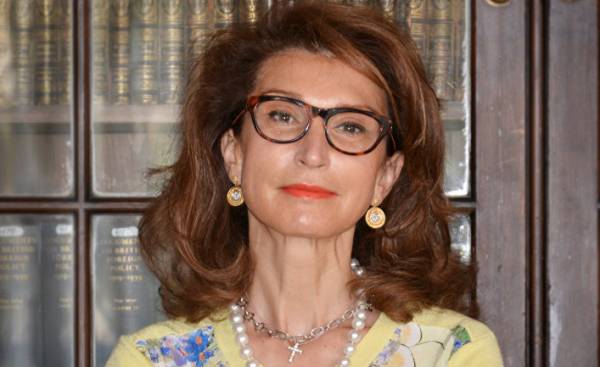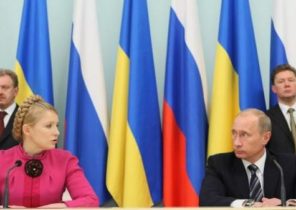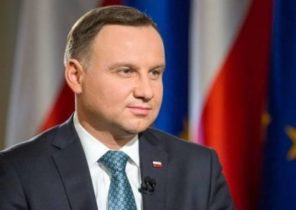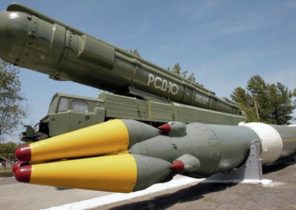
Value the split in British society that led to Bracito and threatening the unity of the United Kingdom, is a consequence of the fact that over the lifetime of two generations the people were divided into two large categories: on the one hand, educated, mobile people around the world feel comfortable (Anywheres, “cosmopolitans”), value autonomy and mobility; on the other more settled, mostly less educated people, rooted in their own country and terrain (Somewheres, “patriots”) and giving priority to community relations and security. Each group consists of many sub-categories; in addition, there is a large “intermediate” group. Based on data from the British survey results, we can conclude that the “cosmopolitan” make up about a quarter of the population, and “patriots” — about half.
A person comfortable to consider themselves part of some kind of “extended family”, formed on the principle of unity of subjective opinions and beliefs. This accessory lets you protect the worldview of the individual around the perimeter of the “security wall” beyond which his view is always confirmed (in psychology this effect is called “susceptibility to proof”).
In the UK the erection of such barriers contribute to the characteristics of the local education system: British students live and make friends, almost never leaving the campus of his Alma mater. Commonly at the end of the universities, “cosmopolitans” are traveling more often than “patriots”; work in London — only one segment of their career life. At the same time, more than 60% of Britons continue to live 30 miles from where they lived to the age of 14.
If, in economic jargon, you have a lot of human capital, you feel comfortable in open systems with a high level of competition and the prejudice and protectionism will only hinder you. It is also likely that, in the language of American sociologist Talcott Parsons (Talcott Parsons), you have “acquired” identity based on your education and career achievements, instead of “attributed identity”, based on sex and ethnicity, residence in a particular place. Because of this you move confidently through the world, than those who have a more “fixed” identity and experiencing a shock in the face of rapid change.
Wealthy and educated people have always had a broader and more open-minded than those who lived in cramped conditions. What has changed is the numerical ratio of the two categories. Cosmopolitan liberalism was the privilege of a very small social stratum. In the modern world due to the growth of accessibility of higher education, the proportion of liberals is 20-25% of the population continues to grow. Over the life of the latest generation of liberalism was the dominant ideology of the political class and national culture. Policy —”cosmopolitans” who think they are acting in the interests of the country, at least in some cases act in the interests of their class; the result is a number of the tendencies from increasing the number of universities to the increasing openness of modern societies.
In regard to issues of “national security and identity”, which rose sharply in recent years these ideological differences have divided the British society and made a factor of instability in the political life of the country, leading to the country’s exit from the European Union and, furthermore, has jeopardized the Union of England with Scotland.
The author of the article “How I left my company” (Why I left my liberal London tribe), published in the Financial Times, David goodheart (David Goodhart) is a complex social issues and analyses of modern British society. Writer and journalist writes:
“Why I, a typical “cosmopolitan”, suddenly began to see the world from the point of view of the “patriots”? What changed me? Apparently, the fact that I was always restless, never felt comfortable within their “tribe”. The young man I rejected the beliefs my parents, who belonged to the upper class (my late father was a member of Parliament from the Conservative party), and became what is called Eton Marxist. It is unlikely that if I was worried about the fate of the disadvantaged around the world. It is rather that, after his illness I was not able to stay in the school football team, and did not get a place in the cricket team (the same circumstances, as I found out later, had an impact on the life of John strachy (John Strachey), who in the 1930-ies belonged to the cohort of the old Eton Marxists, and later became a member of the government of Clement Attlee (Clement Attlee)).
The role of the privileged leftist was I don’t like: I felt the whole “dishonesty”, but had not even considered the possibility of returning to the traditions of their class; in the end, I became a left-liberal journalist, suffering from guilt complex social type, very familiar to his contemporaries.
If you attended the most famous school in the UK, you are often mistaken for an eccentric, a traveler in their own country. And yet the “patron Saint” of Eton “team shambles” George Orwell (George Orwell) knew that the position of insider-outsider has its advantages. It helped me to realize the strangeness of the instincts peculiar to the liberal “party” in North London in 1980-1990-ies: they are much more concerned with the suffering of the inhabitants of distant countries than those who live in a neighboring district. Moreover, they did not recognize the fact that feelings such as religious or national identity is important to someone and actually have neglected the most ordinary people whose interests they are supposed to protect.
Recently during the meeting with readers author David Aaranovitch (David Aaronovitch) have noticed that I, the journalist David goodheart, not able to stand on the side of “patriots”, because you went to Eton. With this came the realization that for the first time in my life I behave as expected from the intellectual Marxist: to rise above the interests of the bourgeoisie, to Express the aspirations of the masses. Today, people have the slogan “Bread and land!”, changed to “Recognition and equipped!”.
In order to leave my intellectual tribe, I needed advisers in the face of such writers as Michael Lind (Michael Lind), Maurice Glasman (Maurice Glasman), Eric Kaufmann (Eric Kaufmann) and Jonathan Haidt (Jonathan Haidt). They helped me to accurately Express a dawning sense of dissatisfaction with modern liberalism. I opened the opposite side of the “idea of progress” that led to the emergence of a vapid ideology of liberalism, which plays a dominant role in our politics.
This philosophy considers the equality of races and sexes as a “prelude” to failure, from any closed communities, including national States. However, the moral equality of all human beings — beautiful, once-utopian idea, which has been included in many constitutions of the world in the middle of the twentieth century does not mean that we have an obligation to all of mankind.
This clause is not universal nature allows liberalism to “stay on earth”, not forgetting about real people who have community ties, feel a need to be needed and to belong to a certain group. Of course, modern politics based on the principles of the rule of law, and (later) the idea of equality of all people, are partly aimed at curbing our “breeding” and animal emotions. But if politics get too far into the wilds of the individualistic abstractions of law and Economics, it will begin to consider society as a random collection of individuals.
This clause provides a basis for a more Mature and emotionally balanced liberalism that recognizes the existence of a society that functions properly when it is based on the habit of cooperation and trust based on shared language, history and culture. Thus, moderate nationalism is definitely the enabling power that strengthens the common interests (and the social system States) to the threat of the divisive effect of abundance, individualism, and ethnic diversity. Although nationalist feeling, as a legacy of British imperialism, that’s a little disconcerting at English “cosmopolitans”, which makes them insensitive to the nationalism of other peoples.
Emotionally Mature liberalism must also recognize that in Western society the white majority, not just ethnic minorities who are attached to their ethnic group and is interested in a certain demographic stability. It is not shameful and is not racism when a person feels uncomfortable in the face of rapid changes — whether due to toranoana surrounding society (gentrification) or the influx of immigrants. Of the reservation flow and other ideas that do not challenge the key representation of the modern liberalism, but the cause and hinder its dogmatic application. (For example, the belief that man and woman are equal but not identical to each other: popular is the idea of division of labor in the family and society.)
As noted by Jonathan haidt, contrary to the old claim that right-wing parties consist of narrow-minded people, “conservatives are able to evaluate a wider range of political emotions than liberals”, ie they are simply a broader view of things. Don’t have to be a supporter of the conservative or Tory party member to see this feature; I consider myself to be centrist, open to ideas on both the left and right of the spectrum. Now I’m post-liberal and proud of it. If I’m trying to save liberalism from explicit iteration or to bury him? Of course, I don’t want his supporters took on too much: it has already led to a powerful response in the form Brekzita in the UK and coming to power of Donald trump in the United States. In addition, I strive to convince as many of my old “fellow” is that we need new rules of the game, a new settlement in the society, taking into account intuitive feelings “patriots”. Join us! You have nothing to lose — besides cozy dinners with friends, which all share the same opinion.”
David goodheart is the author of the newly published book “the Road to somewhere: a populist rebellion and the future of politics” (The Road Somewhere: the Populist Revolt and the Future of Politics).







